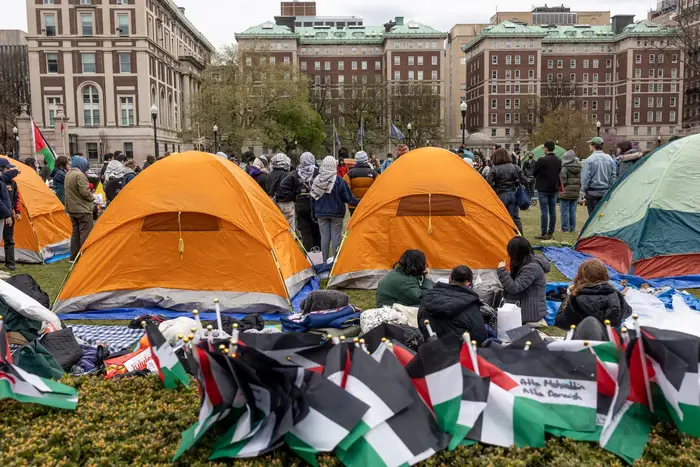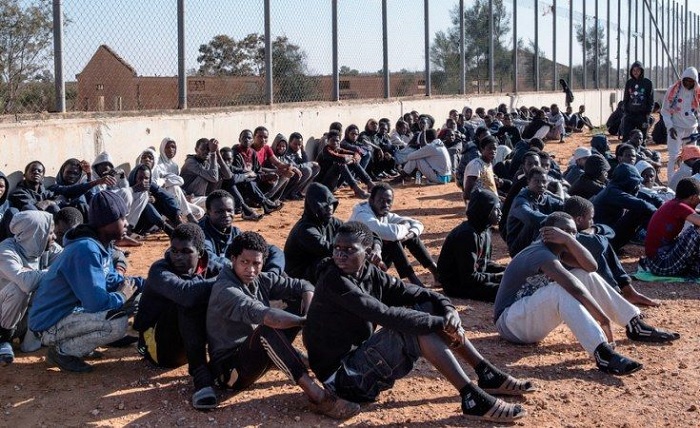Pro-Palestinian protests at Columbia University have reached a boiling point. Following weeks of demonstrations on campus in response to the Israel-Hamas conflict, the university issued an ultimatum to protesters: leave the encampment by a designated deadline or face suspension or even expulsion. However, as of today, April 30, 2024, the encampment remains occupied, defying the university’s threats.
This article dives into the situation at Columbia, exploring the background of the protests, the university’s response, and the ongoing standoff.
Background: Protests Erupt Amidst Mideast Conflict
The current demonstrations at Columbia stem from the recent flare-up in violence between Israel and Hamas, a Palestinian militant group. The conflict has garnered international attention, with passionate responses on both sides.
At Columbia, pro-Palestinian students have been vocal in their condemnation of Israeli actions. Their ongoing protests have taken the form of an encampment set up on campus grounds.
University’s Response: Negotiations and Deadlines
Faced with the persistent encampment, Columbia University officials attempted to resolve the situation through negotiations with student protesters. These discussions reportedly lasted for nearly a week.
However, on Monday, April 29th, Columbia President Minouche Shafik announced that negotiations had failed to reach an agreement. The university then issued a deadline of 2:00 PM EDT for protesters to vacate the encampment.
The university offered a path for students to avoid disciplinary action. If they left the encampment, identified themselves, and signed a form agreeing to abide by university policies, they would be allowed to complete the semester in good standing.
Protesters Remain: Defying the Ultimatum
Despite the looming threat of suspension, pro-Palestinian protesters have chosen to remain in the encampment. As of Tuesday, April 30th, they haven’t dispersed, indicating their commitment to their cause.
This act of defiance has created a tense atmosphere on campus. The university has not yet announced any further actions, leaving the situation in a state of uncertainty.
Key Questions and Considerations
Here are some key questions that arise from this situation:
- Freedom of Speech vs. Disruption: Universities are obligated to uphold freedom of speech, but they also have a responsibility to maintain order on campus. How can these two principles be balanced in situations like this?
- Student Protest Rights: Do students have the right to stage demonstrations on campus, even if they disrupt university activities? What are the limitations on those rights?
- University’s Authority: How far can a university go in disciplining students who engage in protests? What factors should be considered when making these decisions?
Potential Outcomes
The situation at Columbia could unfold in several ways:
- Negotiations Resume: The university and protesters might return to the negotiating table, seeking a compromise that allows for peaceful expression while ensuring the smooth operation of the campus.
- Forced Removal: The university could choose to forcibly remove protesters from the encampment, potentially escalating tensions.
- Standoff Continues: The current stalemate might persist for an extended period, with both sides unwilling to budge.
Conclusion
The ongoing pro-Palestinian protests at Columbia University highlight the complexities surrounding freedom of expression, student activism, and the university’s role in maintaining order.
The situation remains fluid, and it’s unclear how it will be resolved. However, this episode serves as a reminder of the importance of open dialogue and mutual respect in navigating such sensitive issues.




